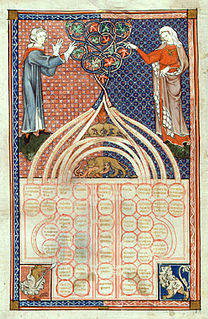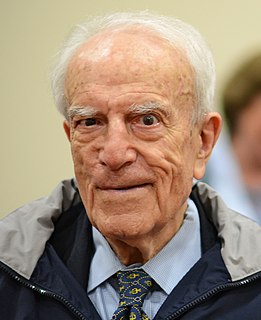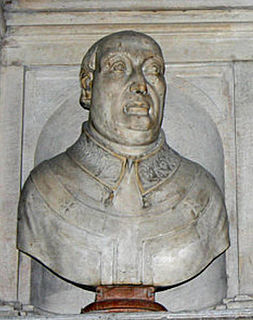The Dean of the Chapel Royal, in any kingdom, can be the title of an official charged with oversight of that kingdom's chapel royal, the ecclesiastical establishment which is part of the royal household and ministers to it.

The Decretum Gratiani, also known as the Concordia discordantium canonum or Concordantia discordantium canonum or simply as the Decretum, is a collection of canon law compiled and written in the 12th century as a legal textbook by the jurist known as Gratian. It forms the first part of the collection of six legal texts, which together became known as the Corpus Juris Canonici. It was used by canonists of the Roman Catholic Church until Pentecost 1918, when a revised Code of Canon Law promulgated by Pope Benedict XV on 27 May 1917 obtained legal force.
Doctor of Canon Law is the doctoral-level terminal degree in the studies of canon law of the Roman Catholic Church. It can also be an honorary degree awarded by Anglican colleges. It may also be abbreviated I.C.D. or dr.iur.can., ICDr., D.C.L., D.Cnl., D.D.C., or D.Can.L.. A Doctor of both laws is a J.U.D., or U.J.D..

The American College of the Immaculate Conception, or the American College of Louvain, was a Roman Catholic seminary in Leuven, Belgium, which operated under the auspices of the United States Conference of Catholic Bishops. Founded in 1857, the American College closed as a seminary in June 2011.

Sigüenza is a city in the Serranía de Guadalajara comarca, Province of Guadalajara, Castile-La Mancha, Spain.
The Abbot of Jedburgh was the head of the Augustinian canons of Jedburgh Abbey, Roxburghshire. It was founded by King David I of Scotland in 1138, and David's grandson and successor Máel Coluim IV ensured its promotion to the status of abbey before 1156. The position was secularized in the 16th century, and in 1606 turned into a secular lordship for the last commendator, Alexander Home, now earl of Home.
William Dudley was Dean of Windsor and then Bishop of Durham.

Ladislas Orsy is a canonical theologian.

Henri Maria Dymphna André Laurent "Rik" Torfs is a Belgian canon law scholar and media personality. He is a former Senator for the Christian Democratic and Flemish party in the Belgian Federal Parliament and a former Rector of the Catholic University of Leuven.
Cormac Mác Shamhradháin O.S.A., b. c.1410-d.1476, was the Roman Catholic Bishop of Ardagh diocese in Ireland from 1444 to 1476.
Stefano Nardini was an Italian Roman Catholic bishop and cardinal.

Giovanni Arcimboldi was an Italian Roman Catholic bishop and cardinal.
Pedro Ferris (1416–1478) was a Spanish Roman Catholic bishop and cardinal.
John of Westphalia, also known as John of Paderborn, Johann von Westphalen and other spelling variations of Johannes, Paderborn and Westfalia, was the first printer in Leuven and possibly in Flanders. He was born in Paderborn or Aachen and seems to have been first active in Venice, but returned to Germany and studied at the university of Cologne before moving to Flanders as a printer. He was active from 1473 in Aalst, working together with Dirk Martens on four books, and from 1474 in Leuven. He worked there in the University until 1498, producing at least 180 books. On his death in 1498, Dirk Martens bought his shop and settled in Leuven. John's brother Conrad of Westphalia was also a printer.

Joannes Roucourt was a Christian theologian and the parish priest of the Saint-Gudula Church at Brussels from 1667 until 1676. As a pastor, he was known as "father of the poor".

Josse van der Baren was a Flemish painter of history paintings and a draughtsman active in the Leuven area around the turn of the 17th century.
Martin Bauwens of Riethoven or Martinus Rythovius (1511–1583) was a Catholic theologian and the first bishop of Ypres. He was a figure of some spiritual and political significance during the early decades of the Dutch Revolt.

Saint Ivo's College was a college at the Old University of Leuven that provided accommodation and facilities for poor students in the Faculty of Law. The founder was Robertus de Lacu, originally from Ghent, who had been professor of canon law since 1463. The college was dedicated to Ivo of Kermartin, the patron saint of lawyers, and was used by the Law Faculty for faculty meetings and ceremonies. The original library was destroyed by marauding Spanish soldiers in 1578, during the Dutch Revolt.
Rudolph of Beeringen or Rudolph of Erps was a 15th-century professor at the University of Louvain He was probably from Beringen, and served as parson of Erps.














